New ones seem to pop up all the time. That empty storefront that used to be an insurance office — now a bustling sandwich shop. The vacant lot you never thought would get filled — now a Southern-themed family restaurant. Entrepreneurs left and right are looking for opportunities and spaces to build out their dreams and open restaurants that fill a niche or introduce something new to a community. Yet one question is unavoidable from day one: how much does it cost to start a restaurant?
There is truly no set answer to this question, as the costs to open a restaurant are going to vary dramatically based on location, concept, size, materials, new or existing location, and equipment. Opening a coffee shop is going to have significantly different costs than opening a full-service French restaurant.
Additionally, your legal and accounting costs are going to vary drastically depending on the complexity of your ownership agreements, investor shares, and local laws and regulations. Do not take any prospective costs at face value without consulting with your accountant, lawyer, real estate broker, and any other local resources.
That said, here are some sample costs that prospective restaurateurs can anticipate, and begins to answer the question: how much does it cost to start a restaurant?

So, how much does it cost to start a restaurant?
Below are estimates, derived from first hand accounting of a range of restaurant types and locations nationwide. The general consensus is that first-time restaurateurs go over budget about 33% on average. Months to profitability (ending up in the black) can range from 6 months to up to 24, depending on the type and scale of restaurant you open.
Total Overall Cost
| Median start-up cost per seat | $3,046 |
| Median start-up cost per square foot | $100-$800* |
| Median total start-up cost | $275,000-$450,000 |
*Depending on type of restaurant.
Construction and Equipment
| Initial construction cost | $140,000-$280,000** |
| Kitchen and bar equipment | $75,000-$115,000*** |
**Slightly over 50% of total overall costs.
***Slightly over 25% of total overall costs.
So, after you subtract construction and equipment from overall total cost, that leaves you with about 20% of your budget to handle … everything else.
Space
| First-month rent | $10,000-$12,000 |
| Security deposit (typically one month of rent) | $10,000-$12,000 |
| First-month utilities**** | $2,500 |
****Including internet and phone service.
Operations
| Insurance | $6,000 |
| Permits and licenses | $5,000-$6,000 |
| POS technology | $20,000 |
| Accounting and legal costs | Variable |
Dining Room and Kitchen
| Fixtures and furniture | $40,000 |
| Smallwares | $10,000 |
| Initial inventory of food and beverages | $5,000-$25,000 |
| Janitorial Supplies | $1,000 |
| Menus | $1,500 |
| Outdoor signage | $15,000 |
But these are just estimates of costs for what you’d probably consider a bare bones opening. They do not include items such as:
- Music/sound system
- Landscaping
- Uniforms
- Public relations
- Fliers or advertising in local publications
Of course, another option when pursuing opening a new restaurant is to purchase an existing establishment from a retiring business owner or someone ready to transition out of their ownership. You will still have significant start-up costs, as you’d have to pay out the existing owner’s share and possibly renovate if the restaurant isn’t set-up exactly how you’d like.

What about franchising?
Another possibility for opening a new place is to buy into a franchise, i.e. a piece of an existing, large-scale brand that you can own and operate personally. But how much does it cost to start a restaurant that is already part of a national or regional franchise?
Full-service franchise restaurants can run its new owners from $750,000 to $3 million or more. Fast food restaurants cost the franchisee from $250,000 to $1 million and up for initial set-up and franchise fee. These numbers can vary widely, however, based on the popularity and prestige of the franchise.
Burger King, for instance, will cost about $2.2 million for a typical restaurant — once you meet the minimum financial requirements of $1.5 million in net worth and $500,000 in liquid assets. Similarly, you must have at least $750,000 in liquid assets to open a McDonald’s or Taco Bell restaurant. To open a KFC, your net worth must also be at least $1.5 million.
The upfront franchise fee is most significant cost in the beginning, but it’s not your only commitment to the parent organization. Most franchisees owe a monthly royalty fee to the franchiser that amounts to between 4 and 8 percent of gross sales. There is also a shared advertising fee that can run up to 5 percent of gross sales, that contributes to the organization’s national advertising and marketing budget.
Franchise agreements often will also require updating to match the overall corporate look and feel (or operational goals) of the master brand. This could occur periodically, every 3-5 years, and include construction costs, new uniforms, new equipment purchases, or interior renovations.
So, why franchise if the costs seem so much higher than launching your own restaurant?
Brand value, for one. The allure of an established brand to your customer translates into low risk for them (if they like McDonald’s, they’ll like your McDonald’s) and built-in trust for you. With a franchise, you also get a set of operating principles, established vendors, clear guides for ordering, ongoing operational and training support, negotiation leverage in real estate and construction issues, and ongoing marketing that you don’t even have to lift a finger to maintain.
Curious about how to control your prime costs once you do open your doors? Download our free eBook on “Growing a Restaurant Profit Margin” today:






